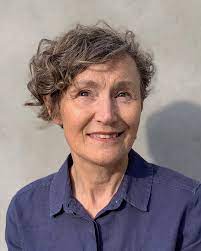 NEW
NEW Veronica O’Keane has recently retired from her position which was as a professor of psychiatry and consultant psychiatrist at Trinity College Dublin. She has over 30 years of experience in the field and has published numerous research papers, especially on mood disorders and on perinatal depression. She is the author of the book A Sense of Self: Memory, the Brain, and Who We Are and The Rag & Bone Shop, How We Make Memories and Memories Make Us. She lives by the sea in north Dublin and is a passionate open sea swimmer.
Our wide-ranging conversation starts with what drew Veronica to psychiatry and her path through medicine. We speak about the evolution of psychiatry over her career, and the integration of it with our growing understanding of neuroscience and neuro-imaging. We speak about an age of enlightment of sorts that the area is entering given the ability for neuroscience to further explain the mysteries of the brain.
We dive in then to some of the specialist areas that Veronica focuses on, some of which are the subject of her books, such as the science of memory and how it evolves, as well as the way that studying the extreme expressions of an illness can help us to understand more mainstream versions of it. We speak about the development of the brain as we age and some of the abstraction that we can develop, which is, in effect an advantage.
A lifelong advocate for women in medicine, Veronica speaks about her own experience as a practitioner and the position of women in the healthcare system and how much improvement still needs to occur.
This series is being supported by an anonymous supporter and we are using our traditional sponsor slots to shine a light on organizations that promote diversity in medicine. These include
The Doctors Back to School Program through the American Medical Association which sends minority physicians and minority medical students into schools in underserved communities as a way to introduce children to minority medical role models. Contact dbts@ama-assn.org for more information on the Doctors Back to School program. https://www.ama-assn.org/member-groups-sections/minority-affairs/doctors-back-school-program
GLMA is a national organization committed to ensuring health equity for lesbian, gay, bisexual, transgender, queer (LGBTQ) and all sexual and gender minority (SGM) individuals, and equality for LGBTQ/SGM health professionals in their work and learning environments. To achieve this mission, GLMA utilizes the scientific expertise of its diverse multidisciplinary membership to inform and drive advocacy, education, and research. https://www.glma.org/index.cfm?nodeid=1
The American Medical Women’s Association is focused on supporting and retaining women in healthcare through promoting gender equity in medicine. https://www.amwa-doc.org/our-work/initiatives/gender-equity-task-force/invest-in-her/
The National Orthopaedic Alliance and international Orthopaedic Diversity Alliance. https://www.orthopaedicdiversity.org/

